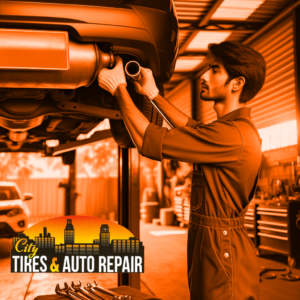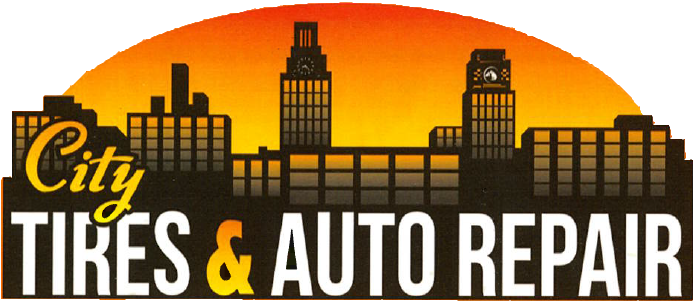Exhaust and Muffler

Exhaust System Inspection:
Technicians inspect the entire exhaust system, including the muffler, catalytic converter, and pipes, for any signs of damage, leaks, or corrosion.
Muffler Replacement:
If the muffler is damaged or rusted, it is replaced to ensure the vehicle runs quietly and efficiently. A new muffler helps reduce noise and control engine back pressure.
Exhaust Pipe Repair and Replacement:
Damaged or corroded exhaust pipes are repaired or replaced to prevent leaks and ensure proper exhaust flow. This service helps maintain engine performance and fuel efficiency.
Catalytic Converter Replacement:
The catalytic converter reduces harmful emissions. If it fails, it needs to be replaced to keep the vehicle compliant with emission standards and running smoothly.
Exhaust Leak Repair:
Technicians identify and fix leaks in the exhaust system, which can cause harmful fumes to enter the vehicle cabin and reduce engine performance.
Performance Exhaust Upgrades:
For those looking to enhance their vehicle’s performance, custom exhaust systems can be installed. These upgrades can improve horsepower, torque, and overall engine efficiency.
Oxygen Sensor Replacement:
The oxygen sensor monitors the exhaust gases and helps the engine control module adjust the air-fuel mixture. Replacing a faulty sensor can improve fuel efficiency and reduce emissions.
These services help ensure your vehicle’s exhaust system operates efficiently, reducing noise, emissions, and improving overall performance. If you notice any unusual noises, decreased fuel efficiency, or a check engine light, it’s a good idea to have your exhaust system inspected by a professional.